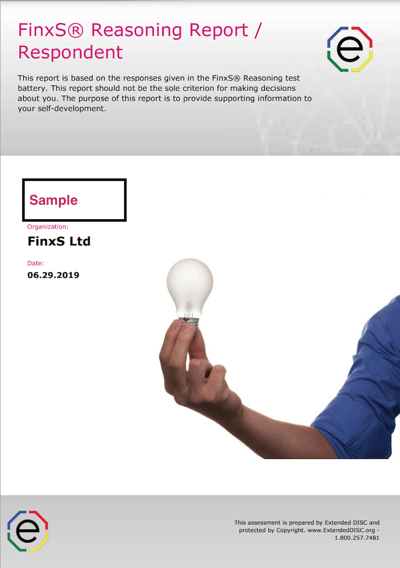Online application processes, highly specific job roles, and fast evolving technology make hiring more challenging. Therefore, having the right tools are essential to making good hiring decisions.
As you already know, the workplace is more data-driven now than in any previous time. So much of your company's success, in all aspects and types of business, rely on people who understand business trends, develop relevant products, and create effective business strategies. It is imperative to hire people who have the ability and adaptability to reason and solve problems.
Cognitive Ability Assessments
 Job roles, requiring an ability to analyze and interpret questions and data, require specific skills. Cognitive Ability Assessments can fit the bill. They evaluate whether a person can logically reach decisions and solve problems in a timely manner.
Job roles, requiring an ability to analyze and interpret questions and data, require specific skills. Cognitive Ability Assessments can fit the bill. They evaluate whether a person can logically reach decisions and solve problems in a timely manner.
They focus on the person's ability to actively and thoroughly analyze, combine and process information. Does the person have the ability to solve various problems and understand connections between different pieces of information in a timely manner? They also help predict which work areas the person may find more challenging and identify what support they may be need to perform more effectively.
Proactively, they can help identify strengths and challenges the person may present for specific tasks and help determine if they are a strong candidate for a job role.
The Tool
The FinxS® Cognitive Ability Tool consists of nine independent tests. They all relate to real-life situations, measuring the person’s speed and accuracy to process and reason received information. Each test measures a separate element in the person’s reasoning process. Take time to select the tests that are closest to the competencies needed in the job role. The different types of assessments include:
- Abstract logical reasoning measures the ability to understand different concepts and identify their interrelationships.
- Logical processing measures the ability to understand cause-effect relationships.
- Spatial reasoning measures the ability to comprehend visual entities and their components.
- Social reasoning measures a person's general sensitivities to observing a social phenomenon.
- Numerical reasoning measures the ability to spot relationships and patterns in numerical information.
- Verbal reasoning measures the ability to understand written information, conceptualize it and find causal relationships.
- Mathematical logical reasoning measures the ability to interpret and criticize statistical information.
- Word Association measures the ability to rely on written information to understand relationships between different concepts.
- Visual memory is the ability to remember and process relevant visual information.
Benchmarking
The report compares a person's results to the benchmark population. The purpose of a benchmark comparison is to identify how this person compares against a selected population. It does not directly tell you anything about this person’s level of intelligence; only how they compare against another group of people.
Compared to the selected benchmark, results may be within ranges of below average, average, or above average.
The good news is you and your applicants do not need all the tests. Consider what supports the job role and use the tool(s) to provide information you need to make better hiring decisions.


